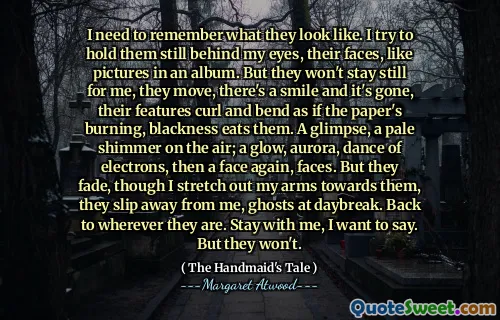I´ll take care of it, Luke said. And because he said it instead of her, I knew it meant kill. That is what you have to do before you kill, I thought. You have to create an it, where none was before. You do that first, in your head, and then you make it real. So that´s how they do it, I thought. I seemed never to have known that before.
In this passage from "The Handmaid's Tale," the narrator reflects on a significant moment with Luke, understanding that his words imply a serious and violent action. The use of the phrase "I'll take care of it" signals a dire intention, transforming a vague notion into a clear, lethal purpose. The narrator realizes that creating the concept of "it" in one's mind is a precursor to actualizing that intention. This internalization reflects a chilling acceptance of violence and its mental preparation.
This insight reveals the psychological process involved in committing acts of violence. The narrator acknowledges a previously unconsidered aspect of this mentality: the need to conceptualize an action before manifesting it. The realization deepens the complexity of moral choices in their world, highlighting how the characters navigate their oppressive reality. Through this reflection, Atwood explores themes of agency, complicity, and the disturbing mechanisms of thought that underlie harmful actions.






